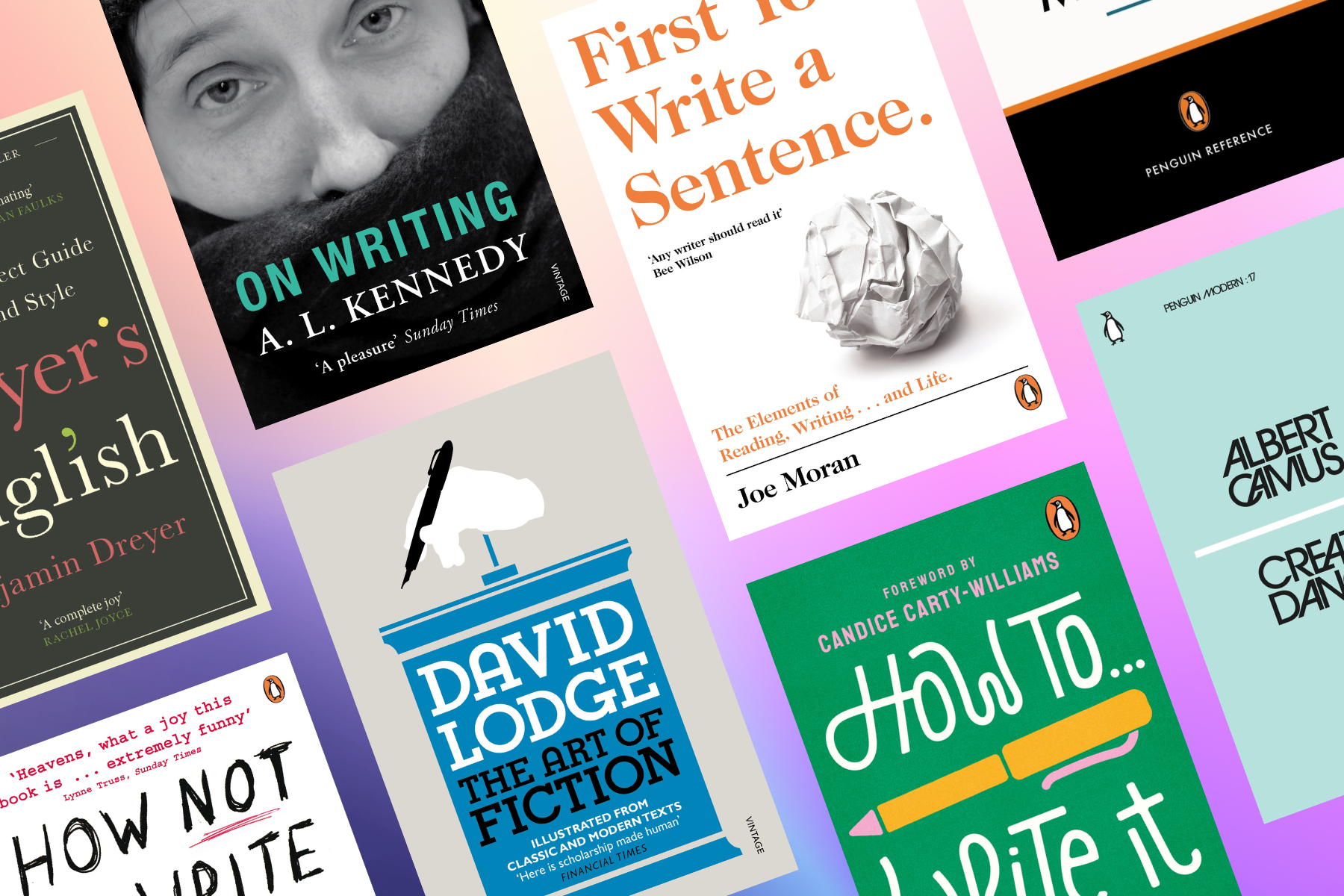Every aspiring book writer needs to start somewhere, and there are few places better to start than… well, books. We’re not just talking the novels hat inspire you – presumably, you’ve already read those – but the handbooks, manuals, and how-to guides from the authors and writers who have mastered prose and style that will help turn your writerly dreams into reality.
Here, we round up a handful of the best books to help get your first novel off the ground – or, at least, into a workable first draft.
In this ground-up guide from Joe Moran, the historian, professor, and author reveals how the history of writing – its origins, its technology, and how it has changed shape over time – can inform how we write today. Looking back on writing from the Bible and Shakespeare all the way to Orwell and the present day, Moran shows how writing has always been a way of connecting with the world, then making it “visible and touchable” to the reader. First You Write a Sentence ? No, first you read this gorgeous book.
Party of Merky Books’ How To Queenie author Candice Carty-Williams, makes How to Write It the perfect starting point for any budding wordsmith.
Any number of books on this list will tell you how to write; this handy guide shows you how not to. Step by step – ahem, misstep by misstep – authors Sandra Newman and Howard Mittelmark take prospective writers through “200 mistakes to avoid at all costs if you ever want to get published”, to ensure that you’re not using the same tired plot clichés or bad metaphors that all too many new writers employ. As funny as it is useful, How NOT to Write a Novel is a mustn’t NOT read.
Sometimes, you need a writing guide that gets straight to the point; enter The Penguin Writer’s Manual , a straightforward, pragmatic companion book for new writers looking to write convincingly, efficiently, and confidently, whether it’s a covering letter or a casual email to a colleague. No messing around here: consult the easy-to-use manual, write what you’re looking to write, and move forward as a better, more masterful prose practitioner.
You may know Camus for his novels like The Outsider , Create Dangerously is an affirming, motivational call to action for any wordsmith or artist, as relevant today as it was some 60-plus years ago.
It's important for aspiring writers to understand the form of the novel – and to learn from the greats who came before them. With The Art of Fiction , novelist, playwright, and literary critic David Lodge explores 50 different tropes, techniques, and devices that any writer (or reader) of novels should have in their arsenal. Learn about everything from interior monologues to intrusive narrators, from symbolism to magic realism, with each section accompanied by an example plucked from the literary canon.
As an award-winning author of novels, short stories and non-fiction, A. L. Kennedy is well-placed to offer up wisdom on the highs, lows, and inevitable challenges of putting pen to paper. On Writing is a compilation of blogs from her Guardian column, as well as essays covering everything from developing characters to hosting writing workshops. Delivered with her characteristic wit, flair, and plenty of personal anecdotes, Kennedy’s reflections on being a writer are a must-have addition to any prospective author’s bookshelf.
A great novel is as much about style as it is substance, and if you’re going to take tips from anyone about how to make your prose sing, you couldn’t do much better than Benjamin Dreyer, Random House’s executive managing editor and copy chief of 15 years. In this comprehensive volume, the “Guardian of Grammar” lays out everything you need to develop an impressive command of the English language, be it sentence structure, prepositions, or the ever-confusing semicolon .
Sign up to the Getting Published newsletter for insider info on how to get published as a new author
By signing up, I confirm that I'm over 16. To find out what personal data we collect and how we use it, including for our recommendations, please visit our Privacy Policy .
